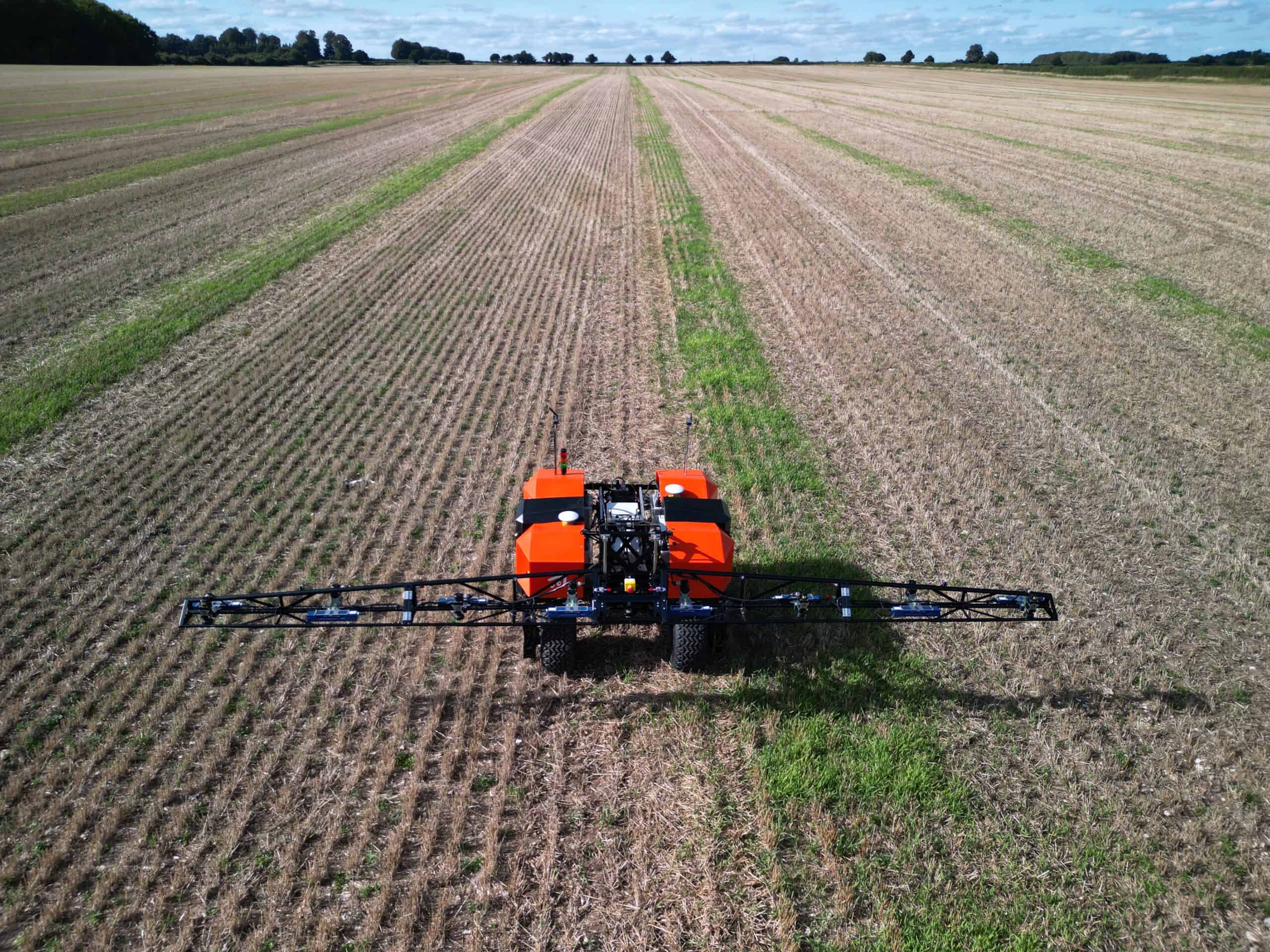
Black grass is causing havoc with wheat farmers across the world, destroying enough wheat to bake more than 1.5 billion loaves of bread a year. But a band of small robots has this herbicide-resistant weed with its distinctive dark-coloured seed heads in their sights. More specifically, Tom, Dick and Harry do.
Tom, Dick and Harry are the names of the prototype robots that are using AI and ‘farming’ real data to deliver per-plant farming that could transform the way wheat farmers operate and help eradicate weeds such as black grass.
The inspiration for these innovative small robots came from a ‘revolutionary’ behemoth of a driverless tractor that Ben Scott-Robinson had been asked to help test several years ago. Having previously worked for Ordinance Survey, Ben was tasked with mapping out the route the driverless tractor would take around the fields. Impressive though the tractor was, the test left Ben with some nagging doubts.
“Technology worth hundreds of thousands of pounds was replacing a driver paid £15 an hour, yet it wasn’t going to change anything. Not the way you farm, the machinery you use, or the way you produce crops,” said Ben. “It got me thinking about location on a field. If you could understand where a plant was and understand how it grew over time, maybe you could do something amazing.”
Wheat farming is facing a crisis caused by soils drained of their richness, the overuse of chemicals causing pollution and climate change triggering floods and droughts, notwithstanding soaring costs. Ben spent six months on the road talking to dozens of farmers across the north of England trying to find out what their problems were. “Costs were a huge problem,” he said. “However, we found that they wanted to reduce the use of chemicals not just because of cost but because they wanted their farms to have a future so they could pass it on to the next generation.”
Ben highlighted that if farmers only apply nitrogen to those plants that need it, they can save up to 40 per cent on costs and use fewer chemicals. If they only apply herbicides where there are weeds or apply fungicide just to the place where there is a fungal outbreak, savings can be up to 90 per cent.
Enter Tom, Dick and Harry. These lightweight small robots, which put less pressure on the soil than a farmer wearing a pair of wellies, are able to go out into the field to map, monitor and understand each individual part of the field. Using images and AI, Ben and his team can see every plant and check whether it has a disease or whether it needs more food. This data is then converted into a map that is plugged into a farmer’s existing sprayer and only spray on plants that need it.
“We can see every single weed. We can isolate whether it is a good weed or a bad weed. Rather than spraying multiple kilograms of herbicide, we can spray just a few grams! We are not letting nitrogen leak into waterways and damage the environment by over-spraying. We are not spraying it on the ground but on the actual plant that needs it,” added Ben.
Ben has big visions for Small Robot Company. The ultimate goal is to eradicate the use of chemicals completely, the result being total regenerative farming. As for now, the first robots are showing signs of success in the farm fields of Wiltshire, but Ben sees no reason why an army of small robots can’t transform farming in the vast fields of somewhere like Idaho.
“If we don’t have enough wheat in the world, we risk famine. It is a truly worrying global problem. And this is why we are on a mission to move towards a data-driven, chemical-free farming system that allows for regenerative work to happen in the field, yet still produces a crop that 60 per cent of the world’s population relies on,” said Ben.
Weatherbys supports regenerative farming and reduces its footprint
Weatherbys Private Bank and its wider group of companies is continually seeking to reduce its environmental impact. Not only have we addressed our own Scope 1 and 2 emissions, achieving carbon neutrality as part of our long-term decarbonisation strategy, but as trusted advisers to our clients, we also want to stimulate discussion about the key issues that will affect them and future generations of their families.
As part of this commitment, we recently agreed to purchase 500 tonnes of CO2 carbon certificates from Market Harborough-based Blaston Farm. In part, this will help finance the farm’s long-term goal of becoming more sustainable, while it could provide the catalyst for other farmers to follow suit by adopting regenerative agricultural techniques.
We believe that for sustainability initiatives to succeed they must make sense financially as well as environmentally. This project satisfies both those criteria and supports our mission of stimulating discussion about important issues that will affect future generations.
